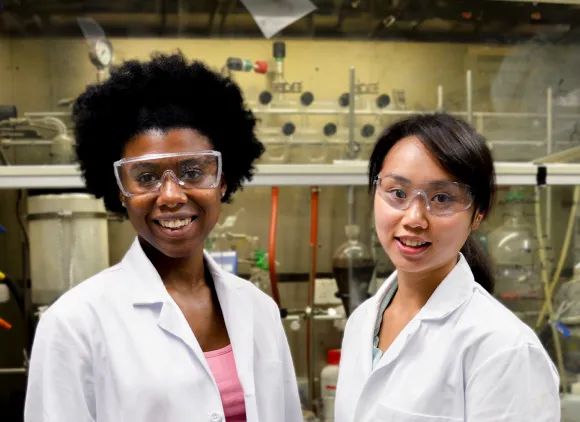The U.S. National Science Foundation Division of Chemistry (CHE) provides workforce development and educational opportunities that encourage more individuals and communities to pursue rewarding careers in the chemical sciences. CHE supports the growth of early-career researchers by offering a range of programs and initiatives that broaden participation, equip students and researchers with essential skills and help create a more inclusive and innovative chemical science workforce. Through these efforts, CHE advances individual careers and the overall progress of the chemical sciences.
This page highlights NSF programs focused on building a diverse, highly skilled national workforce in chemistry and across the mathematical and physical sciences.
Workforce development and broadening participation programs
Partnerships for Research and Education in Chemistry (PREC)
PREC supports partnerships between minority-serving institutions and CHE-supported centers, institutes and facilities to increase recruitment, retention and degree attainment of members of groups most underrepresented in chemistry research.
Research Experiences for Undergraduates (REU)
CHE supports over 70 REU sites providing undergraduate students with research and career development pathways all across the U.S. and covering many different areas of chemistry research.
Mathematical and Physical Sciences Ascending Postdoctoral Research Fellowships (MPS-Ascend)
Supports postdoctoral fellows performing impactful research across all fields supported by the NSF Mathematical and Physical Sciences Directorate (MPS) while broadening the participation of groups that are underrepresented in the mathematical and physical sciences.
Mathematical and Physical Sciences Ascending Faculty Catalyst Awards (MPS-AFCA)
Supports MPS-Ascend postdoctoral research fellows who transition into tenure track faculty positions in any scientific area supported by MPS.
Launching Early-Career Academic Pathways
Supports the research of pre-tenure faculty in mathematical and physical sciences, with an emphasis on those at institutions that traditionally do not receive significant NSF funding, such as minority-serving, predominantly undergraduate or high research-activity (R2) institutions.

